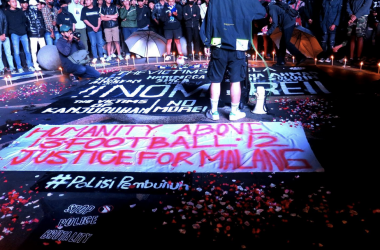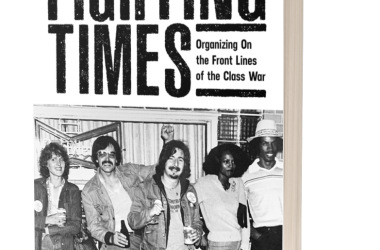By Gabriel Kuhn
A review of Kevin Van Meter’s Guerrillas of Desire: Notes on Everyday Resistance and Organizing to Make a Revolution Possible. Originally published on AAP.
In the early 2000s, a new phenomenon was emerging in the world of punk. Punk rockers began to write their own history. They were usually white, male, 35 plus, and had, in one way or another, wised up. They were nostalgic of the good old times, but at a different place now. The books they put out where great, mediocre, or entirely superfluous.
It seems that activists of the post-Seattle era have now begun to write their own history as well. They are also usually white, male, 35 plus, and have, in one way or another, wised up. There are reasons for the demographic (which I belong to), but at some point we should probably have a conversation about this rather than glossing over it by saying all the right things about race and gender (or whatever we consider them to be).
I have never met Kevin Van Meter, but he has a very punk-like name, and Margaret Killjoy designed a cover to match. That was a good start. Page one, on which the background to the book is explained, less so. Kevin alludes to “a nagging cough that began every time I heard a fellow radical, organizer or activist speak about ‘what is to be done,’” which, unfortunately, is about the only question I’m really interested in. Hence, I don’t mind people offering “suggestions as to what others should be doing” – if they are good suggestions, great, and if they are not, we at least have something to talk about.
Sadly, I also disagree with the premise of Kevin’s book:
“Guerrillas of Desire offers a contentious hypothesis: the fundamental assumption underlying Left and radical organizing, including many strains of anarchism, is wrong. I do not mean organizationally dishonest, ideologically in appropriate, or immoral. I mean empirically wrong. Historical and current strategies on the Left and in radical movements are predicated on the assumption that working class and poor people are unorganized and not resisting.”
I would, in fact, cast that empirical argument the other way. I don’t think that, historically, “the left and radical movements” have assumed that working-class and poor people were unorganized and not resisting. Very few movements claimed that the primary role of “the activist, organizer, and insurrectionist” was to “activate, organize, and educate a disengaged population.” I suppose this is a jab at Leninist tendencies, but even Lenin did not assume the workers and the poor were unorganized, he just figured they needed support in organizing beyond what he called “trade union consciousness.” This might still be wrong or invite the abuse of power, but it’s different from assuming that the population is a passive entity waiting to be molded by a few enlightened revolutionaries.
Luckily, none of this matters with respect to the, in my view, strongest part of the book (Part II), where Kevin tells stories about everyday resistance, divided into sections dedicated to slaves, peasants, and workers. There is plenty of interesting and inspiring material to be found here.
Earlier in the book, Kevin tells us about an interview he did with Harry Cleaver. One of the things Cleaver said was: “What hasn’t been studied enough is the formation of movements and how they gel and come together. You have these molecular struggles going on all the time and all over the place, but under what circumstances do they begin to link up?” I don’t think Kevin gets us closer to the answer, but, needless to say, this is a monumental task.
Guerrillas of Desire will be particularly appreciated by those who are fond of poetic language. Consider this: “Revolutionary politics, especially in their anarchist guise, have always included rich and substantive metaphors. The dream world of guerrillas of desire should fuel not only the possibilities afforded by seemingly endless guerrilla war in everyday life but may also stoke the engine at the center of the revolutionary project. It is in these conceptions and metaphors that a revolution is made possible.” Not being poetically inclined myself, all I really wonder is what this means in practice, but I’m sure that’s the wrong approach. As a mechanical thinker, I was more intrigued by the questions that Kevin raised concerning the relationship between anarchism and autonomous Marxism.
There are various angles from which to approach and enjoy Guerrillas of Desire. If you’re interested in the new genre of activist self-history, this should be on your list.
(February 2018)
More blogs from Gabriel | Back to Gabriel Kuhn’s Author Page





